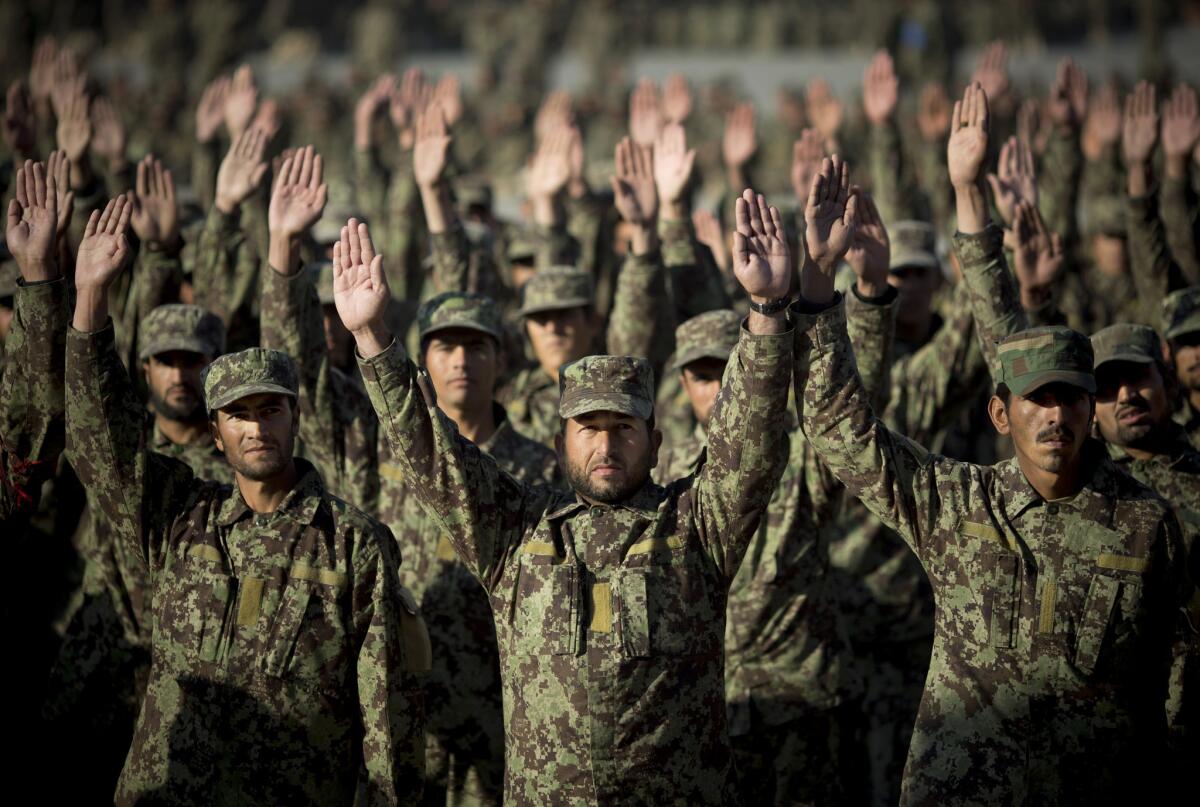U.S. looks to bypass Karzai on Afghanistan security deal

- Share via
WASHINGTON — U.S. officials seeking to resolve a tense standoff with Afghan President Hamid Karzai were exploring on Tuesday whether they could bypass him and get other senior officials to sign a security deal authorizing American troops to remain in the country after 2014.
A day after Karzai abruptly said he would not sign unless Washington agreed to additional conditions, the Obama administration was pushing for Foreign Minister Zarar Ahmad Osmani or another official to endorse the agreement on behalf of the government in Kabul, several U.S. officials said.
The Pentagon has been saying for months that it needs the security pact in place by the end of the year to give planners time to draft deployment schedules and secure funding for post-2014 operations.
Without a signed agreement, U.S. officials, say they will begin planning a complete withdrawal of the remaining 47,000 American troops next year. That means Afghanistan could be left to face a still potent Taliban insurgency without substantial foreign military assistance.
Susan Rice, Obama’s national security advisor, told Afghanistan’s Tolo television station that it was not possible for the United States to postpone signing the deal until the spring, as Karzai has called for. She brushed aside Karzai’s call for the release of all Afghans held at the naval prison in Guantanamo Bay, Cuba, and other demands.
“We’ve concluded the negotiations of the agreement,” Rice said at the end of a three-day visit to Kabul.
“We’re getting the text ready, and we’ll sign it at a high level,” an apparent acknowledgment that someone other than Karzai could sign for the Afghans.
But U.S. officials concede that the notion of bypassing Karzai poses enormous difficulties and is probably not a viable solution to the standoff unless Karzai himself accepts the idea.
“The heads of state wouldn’t have to sign the document, but they would have to delegate that authority,” said a senior U.S. official in Kabul familiar with the discussions. “So I don’t think it’s clear here if it could be put into effect without [Karzai’s] approval.”
Times staff writer Zucchino reported from Kabul.
ALSO:
Scottish government outlines case for independence
Mexico teen cartel member ‘El Ponchis’ released, headed to U.S.
France to send troops to Central African Republic as violence spreads
Twitter: @DavidCloudLAT
Staff writers Cloud reported from the Washington bureau and Zucchino reported from Kabul.
More to Read
Sign up for Essential California
The most important California stories and recommendations in your inbox every morning.
You may occasionally receive promotional content from the Los Angeles Times.












